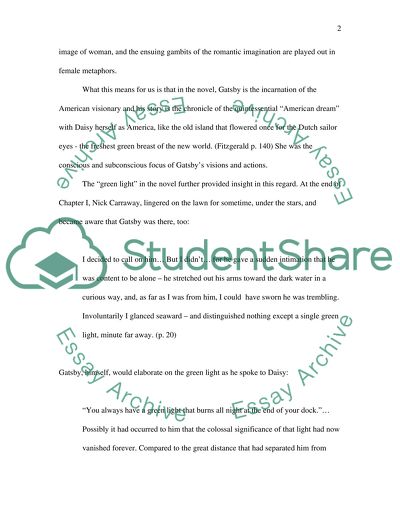Cite this document
(Importance of Vision and Blindness in The Great Gatsby Book Report/Review Example | Topics and Well Written Essays - 1500 words, n.d.)
Importance of Vision and Blindness in The Great Gatsby Book Report/Review Example | Topics and Well Written Essays - 1500 words. https://studentshare.org/literature/1545054-god-sees-everything-discuss-the-importance-of-vision-and-blindness-in-the-great-gatsby
Importance of Vision and Blindness in The Great Gatsby Book Report/Review Example | Topics and Well Written Essays - 1500 words. https://studentshare.org/literature/1545054-god-sees-everything-discuss-the-importance-of-vision-and-blindness-in-the-great-gatsby
(Importance of Vision and Blindness in The Great Gatsby Book Report/Review Example | Topics and Well Written Essays - 1500 Words)
Importance of Vision and Blindness in The Great Gatsby Book Report/Review Example | Topics and Well Written Essays - 1500 Words. https://studentshare.org/literature/1545054-god-sees-everything-discuss-the-importance-of-vision-and-blindness-in-the-great-gatsby.
Importance of Vision and Blindness in The Great Gatsby Book Report/Review Example | Topics and Well Written Essays - 1500 Words. https://studentshare.org/literature/1545054-god-sees-everything-discuss-the-importance-of-vision-and-blindness-in-the-great-gatsby.
“Importance of Vision and Blindness in The Great Gatsby Book Report/Review Example | Topics and Well Written Essays - 1500 Words”. https://studentshare.org/literature/1545054-god-sees-everything-discuss-the-importance-of-vision-and-blindness-in-the-great-gatsby.


